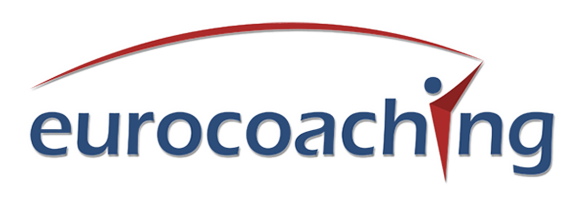
Pre-Employment
As in the past, the résumé continues to be an indispensable tool for any job search and is one of the decisive factors in determining a candidate’s success during the recruitment and selection process.
As recruitment processes have evolved, the résumé has also evolved and organizations continue to review them with meticulous care seeking content that clearly demonstrates the ‘talent’ they pursue.
Nevertheless, reality has remained unchanged over the years: those who are in charge of reading résumés spend between 5 to 15 seconds in making an initial decision, based on their first impressions of the candidate that the résumé gives them, and if positive then take extra time looking for content that reflects the candidate´s value. The vast majority of employment opportunities are lost in this first phase.
Another reality of hiring is that 98% of candidates consider it sufficient to simply fill in some template they found in a word processor program or write a résumé based on poorly advised tips found on the internet. Lastly, very few candidates have received adequate training on how to effectively write this decisive instrument that will ultimately help them obtain the desired job.
A curriculum is a complex document that should briefly describe your professional value, competencies, experience, skills, strengths, knowledge, achievements, social aspects, etc., all in a coherent, attractive, interesting, clear, succinct, real and honest way, with the objective of capturing the recipient’s interest and fulfilling the purpose of being selected for an interview. It is during the interview when you will have the opportunity to defend and demonstrate all that you have presented in this summary of your professional life.
An optimum professional summary is also the fundamental basis for an optimum professional profile in social networks
The résumé is a dynamic document that should be updated and adapted to the characteristics of the job (role, organization and sector) to which it is aimed and, depending on the organizational culture, alternative models can be used.
The professional résumé is a presentation tool that allows you to demonstrate your potential and strengths in a balanced manner. It must be unique and differentiate you from the competing candidates of the same position. Above all, it must be written by the candidates themselves. Elaboration by a third party runs a high risk of the candidate not being able to defend it in a proper way in later interviews, owing to inconsistencies in the candidate’s responses.
We work with the candidate to create a unique, differentiated, and professional résumé. Our experience in Human Resources and international recruitment of professionals is foundational in our understanding of what is sought after as ‘talent’ and we will explain its guidelines, details, and fundamentals to you. We work bilingually. We offer consultancy on the organizational culture of your targeted sector. We will direct you on how to get the job you want in the shortest time possible. We will teach you the know-how and the way to express, in a professional way, your work experience in terms of efficiency and consistency that adds value to your employer. We will guide you on how to create the best cover letter and résumé that produces the result you want.
Nobody know better than you how to create your own professional promotion tools that will facilitate and improve your confidence level as you prepare for the next step: the interview.


PRE-EMPLOYMENT:
PREPARATION FOR HIRING INTERVIEWS
AND SELECTION PROCESSES
The hiring process of today has moved away from a unidirectional interview style, where the employer asks all the questions, to a more balanced one where both parties seek to determine if there is bidirectional fitment between the candidate and the employer.
The selection phase of the hiring process (organic/outplacement/inplacement) represents a window of opportunity to demonstrate your potential. It is at this time when your experiences, attitudes, values, needs, motivations and complex technical, relational, methodological, emotional and personal factors will be assessed by the interviewer.
Different types of interviews and assessment methods such as simulations and assessment centers, among others, may be employed and aim to reveal the candidate’s actual performance and predict future outcomes with respect to the responsibilities of the position.
It is also an opportunity for the organization to present not only their employment offer but also a broad employee value proposition which the candidate should assess and take into consideration.
In this pre-employment phase, many opportunities are squandered due to various factors. These factors may include ignorance of one’s own abilities and level of competence, cultural aspects of the organization, the role to be performed, under/over-estimating one’s skills, inadequate interview preparation, misconceptions about the process itself (smiling, looking into the interviewer’s eyes, ‘perfectionism’ as a strength, ‘introversion/age’ as a disadvantage, demonstrating a ‘personal brand’ without authenticity, nervousness/self-confidence etc.) or by simply not knowing how to adequately express yourself or effectively broach the subject of salary.
Companies hire those who are better prepared and have learned the art of selling their potential
The fact is, given the critical importance of this moment to one’s professional career, preparation that involves planning and practice, with the quality and rigor required, coupled with adequate time investment, will significantly increase the possibility of achieving one’s goal in today’s highly competitive labor market.
We will prepare and guide you throughout the selection process regardless of the method: assessment center, simulations, tests and all kinds of interviews (competencies, telephone, online, collective, semi-structured, special, internal promotion, etc.).
We offer our experience in Human Resources obtained from working for multinational organizations and international recruiting, we understand what they are looking for as ‘talent’ and we will explain its guidelines, details, fundamentals and employment channels.
We offer advice on all stages (pre-during-post) of the process. We will resolve your doubts, help you improve your level of interpersonal and emotional skills and advise you on managing relationships with Headhunters. We will also teach you the secrets of effective salary negotiation in order to be prepared with an effective approach strategy and to obtain the best agreement for both parties.
EMPLOYMENT: ONBOARDING
FIRST 100 DAYS
Once you have accepted the job offer, there are a number of expectations that your new company will have of you which include, in the short term, rapid adaptation to the culture of the organization and productivity. During this initial period, you will have the opportunity to show that the company made the right choice in selecting you for the position by excelling in the duties and responsibilities of your new role. The company will also be examining the quality of your decisions, how well you adapt to your new work team, and the effectiveness of your leadership skills.
The goal of your first 90-100 days is to show that you will quickly add value to the institution by adapting to the organizational system and by demonstrating evidence of productive performance.
Traditionally, career transitions are carried out through corporate onboarding plans in which new employees are informed about the company’s operations, history, locations, administrative issues, and possibly a brief rotation through the various functional areas of the company.
We have found that in some organizations, the initial period can be quite a challenge for the new employee depending on the quality of the onboarding processes (or the absence). This may lead to a slowing down of the employee’s ability to respond and adapt due to bureaucratic problems, unclear role expectations, ambiguity in the stated objectives, lack of personal introductions, unavailable communication lines, and general confusion.
In a new work environment where change, leadership, innovation, and customer satisfaction are intertwined with the new employee’s roles, commitment and professional identity, new cross-functional competencies and a proactive attitude are required to overcome the transition period.
Success or failure during the first few days in the new job is often a strong predictor of future performance.
The tension experienced during the transition to the new job can generate negative stress if the new employee experiences circumstances that negatively impact the employee’s record and may even result in the ending of a promising career. However, tension and stress can also be very positive if the employee has been provided adequate preparation that identifies obstacles, manages inevitable conflicts, understands the organizational culture, and evaluates the opportunities to advance from day to day.
We will prepare and accompany you during this initial phase of your new professional path to minimize common transitional mistakes, enhance your innate skills (thus minimizing the time required for adaptation), socialization, role understanding and productive performance during the probation period. We can work under your organization tutorship or as a result of your own decision to manage this crucial moment of your professional career.
We design with the candidate a personalized plan for the probationary period so as to develop key competencies such as understanding the organizational culture, management of new relationships with subordinates + colleagues + managers, expectations assessment, change management and cultural diversity (expatriates) in order to maintain their productivity and motivation at high levels, guarantee their stability, demonstrate a high commitment, and add value to the objectives set.

Get ready to achieve your goal by increasing your employability
We work internationally, adapting to your global challenges



